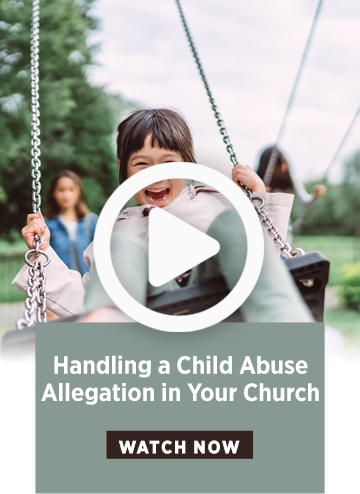• Key point: Civil courts can limit a noncustodial parent’s right to take his or her child to church or involve the child in religious activities, if such a limitation is in the best interests of the child and is the least restrictive means of protecting the child.
• A Maryland appeals court ruled that under some circumstances the civil courts have the authority to restrict a parent’s right to direct the religious training of his or her child. A couple was divorced in 1983, with custody of their 1-year-old child being awarded to the mother. The father was given liberal visitation rights. For the next several years, the parties had few disagreements working out the visitation rights of the father. This changed when the father began attending a fundamentalist Baptist church when the child was 10 years old. The mother noticed that following the father’s conversion to the fundamentalist Baptist faith (he previously had been a Catholic and then a Methodist) the child would return home from visiting her father with signs of anxiety, including anxiety attacks, insomnia and crying. The mother attributed these symptoms to the vigor with which the father pursued his new fundamentalist beliefs in his dealings with the child. For example, the father took the child with him on his door-to-door witnessing activities, insisted that the child’s mother was not “saved” and was therefore destined for eternal damnation, would not allow his daughter to wear a bathing suit her mother had given her since he found it too immodest, and condemned music that was permitted by the child’s mother. The mother discussed her concerns with the father and asked him not to take the child to church. The father refused this request. The child’s problems persisted for another year, at which time the mother took the child to a pediatric psychiatrist. The mother relied in part upon the testimony of this psychiatrist in seeking a court order barring the father from taking the child back to the Baptist church. The trial court agreed with this testimony, and issued an order prohibiting the father from having the child “participate in any church or church-related activity.” The father appealed this order, claiming that it was overly broad and violated his constitutional right to religious freedom. The appeals court acknowledged that “few areas of dispute in child custody and visitation cases are more fraught with difficulty than those involving differences in the religious beliefs of the divorced parents.” However, “when the welfare of the child is threatened, the task of intervention cannot be avoided, and under some circumstances actions based solely upon the sincerely held religious beliefs of one parent or both parents must give way to the safety and welfare of the child.” A state appeals court agreed with the father that the trial court’s order was too broad: “The order prohibits the father from having the child `participate in any church or church-related activity’ while in his custody. Quite apart from the problems of interpretation and enforcement that an order of this breadth will necessarily entail, the order clearly reaches activities such as church picnics, bicycle rodeos, and the like that this record does not show would be harmful to the child.” On the other hand, based on the testimony of the psychiatrist, the court concluded that participation by the child in some church activities did adversely affect the welfare of the child. The court observed that “it was the proselytizing by the father and the direct involvement of the child in his efforts to convert others that [the psychiatrist] found particularly harmful to the child, and thus the record would support a prohibition of activities of this type in the future.” Whether the father should be prevented from taking the child to church services was a more difficult question. In this regard, the court observed: “We do not suggest that under ordinary circumstances attendance at a noncustodial parent’s church, although of a different faith from that selected by the custodial parent, is improper. Indeed [as another court has noted] there may also be value in letting the child see, even at an early age, the religious models between which it is likely to be led to choose in later life. And it is suggested, sometimes, that a diversity of religious experience is itself a sound stimulant for a child.” The court noted however that in this case the child was suffering harm from conflicts between the faiths of his parents, and in such a case some limitation upon the noncustodial parent’s right to take the child to religious services may be in order. The court sent the case back to the trial court for further deliberations. Kirchner v. Caughey, 606 A.2d 257 (Md. App. 1992).
See Also: The Free Exercise Clause
© Copyright 1993, 1998 by Church Law & Tax Report. All rights reserved. This publication is designed to provide accurate and authoritative information in regard to the subject matter covered. It is provided with the understanding that the publisher is not engaged in rendering legal, accounting, or other professional service. If legal advice or other expert assistance is required, the services of a competent professional person should be sought. Church Law & Tax Report, PO Box 1098, Matthews, NC 28106. Reference Code: m55 c0493




